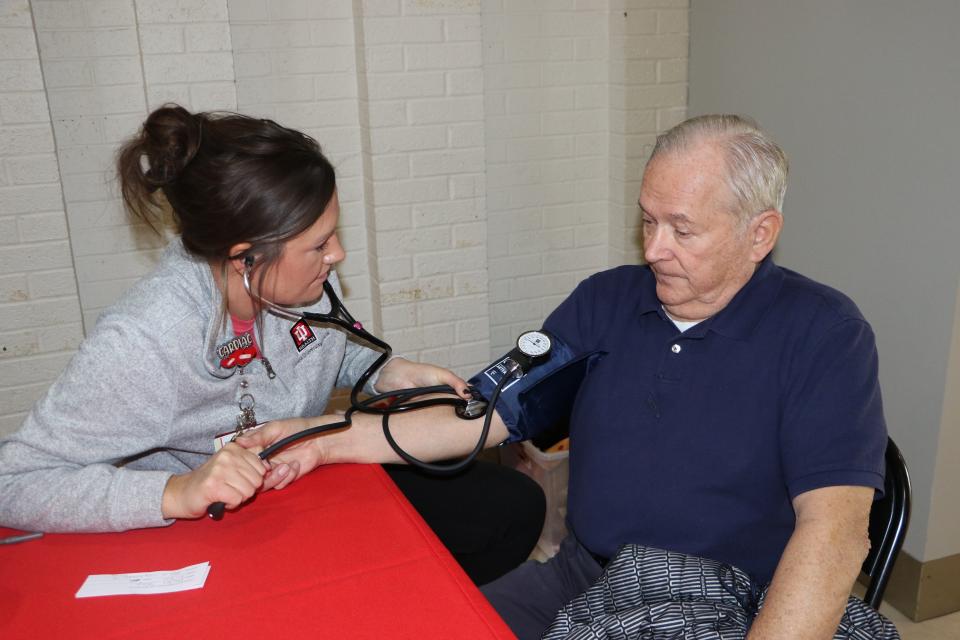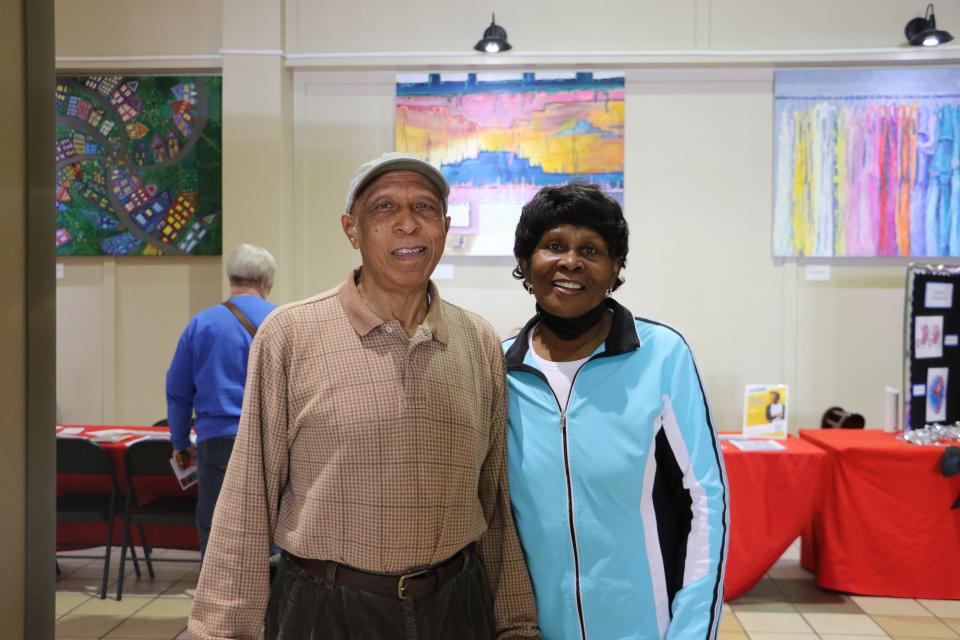Report: Health conditions disproportionately harm low-income residents
Editor's Note: The following is part of a class project originally initiated in the classroom of Ball State University professor Adam Kuban in fall 2021. Kuban continued the project this spring semester, challenging his students to find sustainability efforts in the Muncie area and pitch their ideas to Deanna Watson, editor of The Star Press, Journal & Courier and Pal-Item. This spring, stories related to health care will be featured.
MUNCIE, Ind. – Residents living in low-income neighborhoods are at a higher risk of developing health conditions like obesity, smoking-related illnesses and psychological distress. The Commonwealth Fund reported in 2018 that the health of people in low-income neighborhoods often suffers because the residents cannot afford housing, food or proper childcare.

According to HealthCare.gov, being considered a low-income individual in Indiana in 2022 equates to an annual salary of $13,590 or less. For a family of four, that amount increases to an annual income of $27,750 or less. As reported by The Commonwealth Fund, higher crime rates in low-income neighborhoods may increase the risk of psychological distress and bodily harm while also discouraging physical activity for both adults and children.
“Medical care is one important part of someone's overall health, but we also know social factors such as safety, transportation, education and finances play a large role in health,” said Suzanne Clem, the vice president of community engagement at Open Door Health Services in Muncie, Indiana.
According to Open Door Health Services’ 2021 Annual Report, Open Door provided services to 20,489 individuals. A majority of those patients were residents of Delaware County, which has one of the highest poverty rates in Indiana, Clem said.
“Diabetes, hypertension (or high blood pressure), low-birth weight, addiction and mental illness continue to be challenges affecting under-resourced neighborhoods and counties in a disproportionate way,” said Clem.Hypertension
Various organizations, including the Ross Community Center, the 8twelve Coalition, Open Door Health Services and the Healthy Lifestyle Center in Muncie come together to educate the community on how to be healthy. For example, twice a year, Open Door Health Services partners with the Healthy Lifestyle Center to host a health fair for the community to come and learn about proper nutrition, exercise and other ways to live a healthy life.

“In the Black neighborhoods, there is a prevalence of very resistant hypertension. Avoiding salt is a great, first thing to do,” said Dr. Lynn Witty, the outreach coordinator at the Healthy Lifestyle Center in Muncie.
Witty has worked at the Healthy Lifestyle Center since April 2019. Hypertension is a common health condition caused by eating cheap, unhealthy, fatty foods made easily accessible to people who live in low-income neighborhoods. To teach the community how to eat healthy, Witty hosts cooking classes for families.
“(Cooking classes) remind people that eating nutritious food can be less expensive. You get good, healthy meals, and you can start to teach your kids how to cook because you’re spending time together in the kitchen,” said Witty, a Ball State University alumna. “A lot of these parents work, and they have very little time.
The best place really to do more than one thing — eat together and eat healthy — is the kitchen.”
The cooking classes are Monday through Friday at 6 p.m. in two of the kitchen classrooms at Ball State University’s College of Health building. Witty said she will be hosting these cooking classes at the YWCA in the next couple of months. Anyone is welcome to join free of charge.
Smoking-related illnesses
According to the Indiana State Health Assessment & Improvement Plan for 2022-2026, unless smoking rates are further reduced, an estimated 151,000 Indiana youth will ultimately die prematurely of smoking. In September 2022, Indiana ranked No. 9 in the top 10 states with the highest smoking rates, according to Healio News, at 19.2%. The highest-ranked state was West Virginia at 23.8%.
“(There are) lots and lots of smokers in our communities, and people a lot of times don't actually think about quitting. Smoking leads to emphysema and bronchitis,” said Witty. “A lot of people like to deny their shortness of breath because of their smoking and they’ll say, ‘Oh, it's because I'm getting old.’”
Along with Open Door Health Services and Indiana University Health Ball Memorial Hospital in Muncie, Witty hosts free tobacco-cessation classes — both individually and in groups. Witty said she hosts individual cessation consultations at convenient times for the client at the Healthy Lifestyle Center, and the cessation support group meets on Mondays from 5-6 p.m. in Room 116 at Ball State University’s College of Health building. Witty asks that people RSVP to the Healthy Lifestyle Center beforehand so that she knows how much food to bring to these meetings.
Substance abuse and mental illness
In 2021, the Centers for Disease Control and Prevention released a report on overdose deaths across the United States. WFYI Indianapolis reported that Indiana had an estimated 2,755 deaths from drug overdoses — a record high for the second year in a row.
“There’s a lot of different things that fuel addiction, but you can say that same thing about there being a lot of things that fuel mental illness,” said Cory Matters, a licensed social worker who does clinical therapy in Muncie, Indiana.
Having grown up in Muncie, Indiana, Matters said he witnessed a lot of the problems associated with people who are having “a harder time.”
“I eventually ran into my own challenges with substance-use issues and issues with the criminal-justice system just due to the nature of the difficulties I was going through,” said Matters.
Being a graduate from Ball State University’s master’s program in social work, Matters handles medically assisted treatment, substance-use-disorder cases and other kinds of mental illnesses. As a social worker, Matters said he uses dialectical-behavior therapy to enhance his clients’ ability to know that “they have control and autonomy over their own lives.” Matters said his dialectical-behavior therapy has four main pillars: interpersonal relations, emotional intelligence, tolerance to stress and mindfulness.
“When you enhance your understanding of these aspects of your life, it gives you a better sense of control over the parts of your life that can improve upon,” said Matters. “I'm trying to mainstream the treatment of substance-use disorder along with so many other disorders because it is the disease that people feel in their lives that causes anxiety, depression and mental illness in the first place.”Matters said it’s important for people to define substance-use disorder as a “disease of choice, not a moral failure.”
“This stigma is ultimately causing death and a higher mortality rate for the people who are struggling,” said Matters. “We need to be more understanding of what people are going through to give them an opportunity to move forward.”
This article originally appeared on Muncie Star Press: Report: Health conditions disproportionately harm low-income residents

